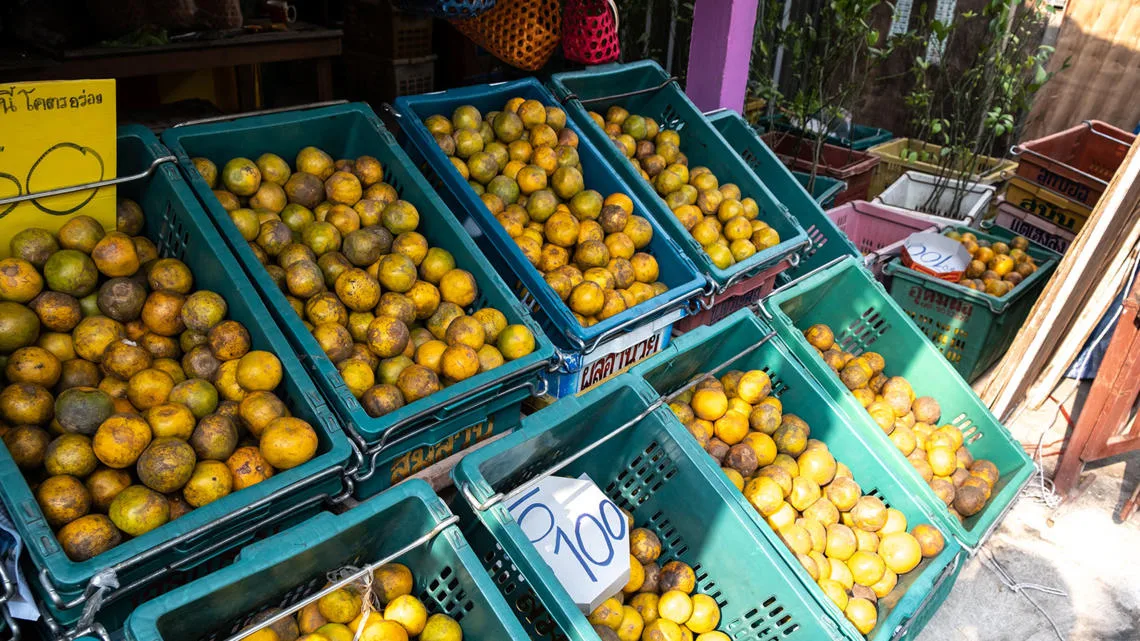Authors
Diane Holdorf, Lawrence Haddad
- Support SMEs providing food to the most vulnerable
- Preserve delivery capacity and infrastructure for when markets bounce back
- Why? Because the world is watching, and expecting companies to step up
As COVID-19 continues to impact millions of lives and jobs around the world, it is also making our global food system increasingly vulnerable. The poverty, malnutrition and food insecurity that were already challenges before the pandemic – with 820 million people chronically hungry in 2018 – are set to grow as a result of it. As the world begins to design recovery packages and policies and commit billions of dollars to guide our recovery from COVID-19, it is critical that we do not ignore an impending food crisis. Policymakers, civil society and business need to act now to increase the resilience of vital supply chains – such as food, agriculture and health sectors – to prevent future shocks and secure a healthy future for all.
Many multinational companies (MNCs), with their ability to adapt and respond quickly as well as their fundamental interest in maintaining a healthy workforce and robust consumer base, are stepping up – showing determination and creativity in keeping food value chains moving from farm to consumer despite the lockdowns. By guaranteeing salaries and work contracts to employees, providing advanced financing to small suppliers and retail customers, and donating unbranded emergency funds and supplies to communities in need, some large companies are already making a difference. Here, we propose, they all have an even larger role to play.
While MNCs provide the majority of food for higher income regions, such as Europe and North America, their market share in middle- and low-income countries in parts of Asia, Africa and Latin America is significantly smaller. With most of their employees and consumers also in wealthy countries, there is an obvious pull for MNCs to prioritise these higher income markets in their own COVID-19 response efforts.
However, it is vital for MNCs to look beyond their largest markets to support, a) workers employed by contractors and partners in their food value chains, and b) the small and medium enterprises (SMEs) that provide the majority of food in the middle- and low-income contexts. Stepping up in this way will have long term benefits for MNCs, which come down to trust and reputation, and future business opportunity and preparedness.
What and why do more?
First, SMEs are essential food system actors in middle- and low-income markets, providing the majority of food to people with the fewest resources. They play a critical role in maintaining food security, linking up farmers with small scale processers, distributors and retailers. Many SMEs lack the know-how or capacity to access available government assistance even where this exists. MNCs can support SMEs through training programs and business-to-business advice, building trust within the broader ecosystem, including their own relationship with government partners. They can also support the ecosystem by sharing capacity to help SMEs stay afloat. For example, setting up systems to share haulage capacity to get foods from farms to markets, supporting efforts to maintain high food safety standards, continuing partnerships to fortify staple foods, and providing new financing options to SMEs that are delivering nutritious foods to the most vulnerable people to survive the crisis.
Second, MNCs will want to preserve their delivery capacity and infrastructure for when markets bounce back. By providing nutritious foods to workers across the value chain they ensure business preparedness and an efficient ramp up when demand returns to pre-pandemic levels. In the first article of this Nutrition Connect series, the authors present a chart looking at the food system and the COVID-19 crisis. It highlights differences in mitigation and adaptation efforts between high-income and middle- and low-income countries. While all countries are affected by this crisis, MNCs can fill an important gap in low-income contexts since they have a unique reach to the beginning of the supply chain. Laborers and other supply chain workers, who often fall through the cracks of public assistance programs, would benefit significantly from increased health and nutrition assistance at their workplace. This would ensure a healthier workforce during and after the pandemic, and build brand loyalty across the supply chain. With the crisis transforming public perceptions of food workers’ value – elevating it to that of doctors, nurses and caregivers – these employees recognise that they play a critical role in keeping food on the tables of families around the world. They want companies to take more responsibility to protect their health and wellbeing.
Third, Consumers in high- and low-income settings will remember how major companies responded to the crisis. Reputation and consumer trust are paramount to generating business and maintaining a ‘license to operate’ – people around the world are looking to MNCs to demonstrate leadership. The Edelman Trust Barometer’s Special Report on COVID-19 highlights the private sector’s essential role in the context of the pandemic. Moreover, Edelman’s report on trust in brands during the pandemic points shows there is “unanimity across markets (90 percent globally) that people want brands to do everything they can to protect the well-being and financial security of their employees and suppliers, even if it means substantial financial losses until the pandemic ends”. Business remains a credible source of information among consumers, and in this context, “brands can build a new level of connection with consumers or lose the relationship forever”. For example, 65 percent of respondents in the trust in brands report said that a brand’s response in the crisis will have a large impact on their likelihood of purchasing it in the future. How a company responds in low-income compared to high-income contexts is just as important, if not more so due to increased vulnerability – these actions are visible around the world. Just as positive actions will be remembered, so too will any actions that take advantage of the crisis. Promoting unhealthy foods or targeting vulnerable groups (we note that obesity is thought to be a key risk factor in the severity of COVID-19) is not part of the solution. Companies should offer the healthiest foods possible and market products responsibly.
The economic recession from COVID-19 will disproportionately affect poor people, curtailing labor opportunities and income, and generating food insecurity that will be felt acutely by many. Without concerted effort by public- and private sector leaders, disparities between the world’s wealthiest and poorest will be further exacerbated by this crisis, slowing future economic growth globally. We need more MNCs to step up and responsibly mitigate the effects of the crisis in middle- and low-income countries. Investments today in the wellbeing of SMEs, workforces, and consumers will go a long way to protecting wider health and wellbeing and raising the standing of MNCs. The current crisis is an opportunity for MNCs to show their commitment to being a central part of the solution for sustainable and human development. They need to take it, for their own sake, and everyone else’s.
This article was originally published on nutritionconnect.org
About the authors
Diane Holdorf is Managing Director Food and Nature, WBCSD
Lawrence Haddard, Executive Director of the Global Alliance for Improved Nutrition (GAIN)
WBCSD news articles and insights may be republished in accordance with the Creative Commons Attribution-NonCommercial-NoDerivatives 4.0 International Public License, and in accordance with our Privacy Policy. All Content must be featured with due credits.
Outline


